Summary of the day so far …
-
Ukraine has accused Russia of firing rockets from around the captured Zaporizhzhia nuclear power plant, killing at least 13 people and wounding 10, knowing it would be risky for Ukraine to return fire. Ukraine says Russia targeted the town of Marhanets, which Moscow says Ukraine has used in the past to shell Russian soldiers at the plant, which Russia seized in March. Calling on foreign allies to send more powerful weapons, the Ukrainian president, Volodymyr Zelenskiy, said in a late-night video address that Kyiv “will not leave today’s Russian shelling of the Dnipropetrovsk region unanswered”, and vowed to inflict as much damage on Russia as possible to end the war quickly.
-
Russian-imposed authorities in Zaporizhzhia region have claimed that anti-aircraft defence systems thwarted Ukrainian attacks on the occupied city of Enerhodar and the nearby Zaporizhzhia nuclear power plant. The claims have not been independently verified.
-
Ukraine’s air force said it believed up to a dozen Russian aircraft were destroyed on the ground in Tuesday’s dramatic explosions at the Saky airbase in Crimea, which Russia said killed one person, wounded 13 and damaged dozens of nearby houses. Political sources in Ukraine said the Ukrainian military had carried out the attack, but Kyiv did not publicly claim responsibility. One expert said it may have been the product of a daring raid rather than a missile strike.
-
The British defence secretary, Ben Wallace, said he thought the Saky airbase in Crimea was a “legitimate target” for Ukraine. “First and foremost, Russia has illegally invaded, not just in 2014, but now Ukrainian territory,” he said. “Ukraine, under UN articles, is perfectly entitled to defend its territory and take what action it needs to against an invading force.”
-
Pro-Russian separatists accused Ukraine of shelling a brewery in the occupied eastern city of Donetsk on Wednesday, killing one person and triggering a leak of ammonia that sparked a fire, Reuters reported.
-
Russia’s governor of Kursk, Roman Starovoyt, said that two settlements that border Ukraine were shelled.
-
The Ukrainian parliament commissioner for human rights has issued updated figures for child casualties since Russia began its latest invasion of Ukraine. The official figures are that 361 children have been killed and 705 children injured. As of 11 August, the commissioner says that 204 are considered missing, and that 6,159 have been deported.
-
The EU has been urged to put a travel ban on Russian tourists, with some member states saying visiting Europe is “a privilege, not a human right” for holidaymakers. Ukraine’s president, Volodymyr Zelenskiy, has told the Washington Post that the “most important sanction” is to “close the borders, because the Russians are taking away someone else’s land”.
-
Latvia’s parliament, the Saeima, has named Russia as a terrorist-supporting state. In a statement, it said Russia had chosen a “cruel, immoral, and illegal tactic, using imprecise and internationally banned weapons and ammunition, targeting disproportionate brutality against civilians and public places” in Ukraine.
That is it from me, Martin Belam, for now. I will be back later on. Tom Ambrose will be here with you shortly.
Key events
Britain and Denmark will provide more financial and military aid to Ukraine, they said on Thursday as European defence ministers met in Copenhagen to discuss long-term support for the country’s defence against Russia’s invasion.
Britain, which has already donated advanced weapons systems to Ukraine and given thousands of its troops military training, said it would send more multiple-launch rocket systems, Reuters reported.
It would also donate a “significant number” of precision-guided M31A1 missiles that can strike targets up to 80km (50 miles) away.
“This latest tranche of military support will enable the armed forces of Ukraine to continue to defend against Russian aggression and the indiscriminate use of long-range artillery,” the UK defence secretary, Ben Wallace, said in a statement.
“Our continued support sends a very clear message: Britain and the international community remain opposed to this illegal war and will stand shoulder-to-shoulder, providing defensive military aid to Ukraine to help them defend against Putin’s invasion.”
Denmark will increase its financial aid to Ukraine by 110m euros, said the Danish prime minister, Mette Frederiksen, at a conference in Copenhagen hosted by Ukraine, Denmark and Britain.
She added: “This is a war on the values that Europe and the free world are built upon … Today we reaffirm our commitment to support of Ukraine.”
Russia has turned down a Swiss offer to represent Ukrainian interests in Russia and Moscow’s interests in Ukraine because it no longer considers Switzerland a neutral country.
Switzerland has a long diplomatic tradition of acting as an intermediary between countries whose relations have broken down, but Russian foreign ministry spokesperson Ivan Nechayev said this was not possible in the current situation.
“The Swiss were indeed interested in our opinion on the possible representation of Ukraine’s interests in Russia and Russia’s in Ukraine,” Nechayev told reporters.
“We very clearly answered that Switzerland had unfortunately lost its status of a neutral state and could not act either as an intermediary or a representative. Bern has joined illegal western sanctions against Russia.”
Neutral Switzerland has mirrored nearly all the sanctions that the EU imposed on Russia over its military intervention in Ukraine, Reuters reported.
Summary of the day so far …
-
Ukraine has accused Russia of firing rockets from around the captured Zaporizhzhia nuclear power plant, killing at least 13 people and wounding 10, knowing it would be risky for Ukraine to return fire. Ukraine says Russia targeted the town of Marhanets, which Moscow says Ukraine has used in the past to shell Russian soldiers at the plant, which Russia seized in March. Calling on foreign allies to send more powerful weapons, the Ukrainian president, Volodymyr Zelenskiy, said in a late-night video address that Kyiv “will not leave today’s Russian shelling of the Dnipropetrovsk region unanswered”, and vowed to inflict as much damage on Russia as possible to end the war quickly.
-
Russian-imposed authorities in Zaporizhzhia region have claimed that anti-aircraft defence systems thwarted Ukrainian attacks on the occupied city of Enerhodar and the nearby Zaporizhzhia nuclear power plant. The claims have not been independently verified.
-
Ukraine’s air force said it believed up to a dozen Russian aircraft were destroyed on the ground in Tuesday’s dramatic explosions at the Saky airbase in Crimea, which Russia said killed one person, wounded 13 and damaged dozens of nearby houses. Political sources in Ukraine said the Ukrainian military had carried out the attack, but Kyiv did not publicly claim responsibility. One expert said it may have been the product of a daring raid rather than a missile strike.
-
The British defence secretary, Ben Wallace, said he thought the Saky airbase in Crimea was a “legitimate target” for Ukraine. “First and foremost, Russia has illegally invaded, not just in 2014, but now Ukrainian territory,” he said. “Ukraine, under UN articles, is perfectly entitled to defend its territory and take what action it needs to against an invading force.”
-
Pro-Russian separatists accused Ukraine of shelling a brewery in the occupied eastern city of Donetsk on Wednesday, killing one person and triggering a leak of ammonia that sparked a fire, Reuters reported.
-
Russia’s governor of Kursk, Roman Starovoyt, said that two settlements that border Ukraine were shelled.
-
The Ukrainian parliament commissioner for human rights has issued updated figures for child casualties since Russia began its latest invasion of Ukraine. The official figures are that 361 children have been killed and 705 children injured. As of 11 August, the commissioner says that 204 are considered missing, and that 6,159 have been deported.
-
The EU has been urged to put a travel ban on Russian tourists, with some member states saying visiting Europe is “a privilege, not a human right” for holidaymakers. Ukraine’s president, Volodymyr Zelenskiy, has told the Washington Post that the “most important sanction” is to “close the borders, because the Russians are taking away someone else’s land”.
-
Latvia’s parliament, the Saeima, has named Russia as a terrorist-supporting state. In a statement, it said Russia had chosen a “cruel, immoral, and illegal tactic, using imprecise and internationally banned weapons and ammunition, targeting disproportionate brutality against civilians and public places” in Ukraine.
That is it from me, Martin Belam, for now. I will be back later on. Tom Ambrose will be here with you shortly.
Ukraine’s defence minister, Oleksii Reznikov, has been at the Ukraine Donors’ Conference in Copenhagen with his Danish and British counterparts. Speaking this morning, he said:
Russia’s words, and agreements with them, are not worth the paper they are written on. So what can be done? This solution is obvious. Russia succeeds when it manages to divide us, when it confronts us one-on-one, pulling together its resources and beating us. Russia is defeated and backs down when it loses the initiative, and meets with coordinated resistance.
He went on to thank the Danish defence minister, Morten Bøedsko, and the British defence minister, Ben Wallace, for their continued support, and also singled out for praise Lloyd Austin, the US secretary of defence. The meeting was addressed via video link by Ukraine’s president, Volodymyr Zelenskiy.
Here is a selection of some of the latest images sent to us from Ukraine over the newswires.
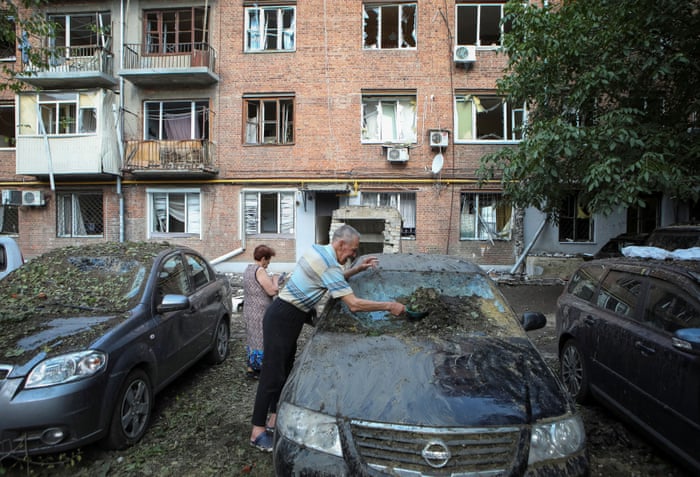
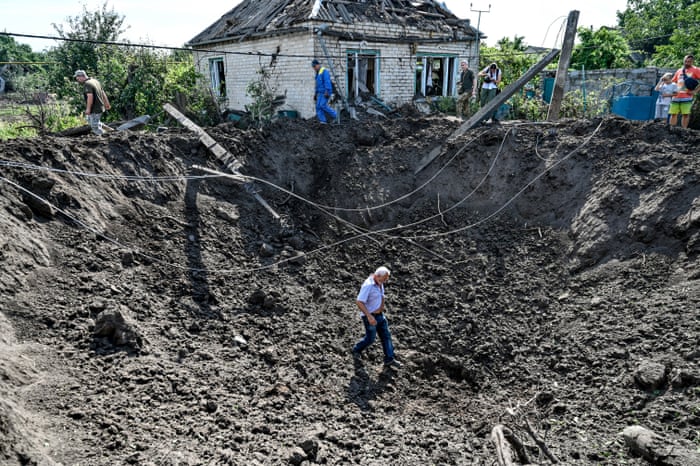
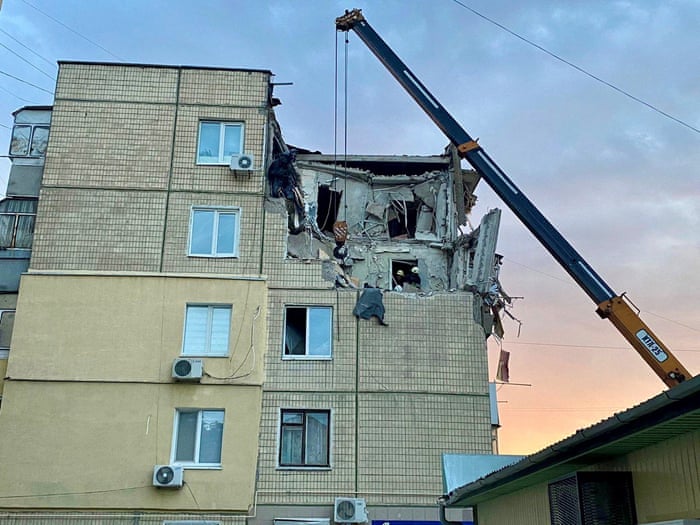
Latvia’s parliament, the Saeima, has named Russia as a terrorist-supporting state.
In a statement, the Saeima called on the EU to prevent tourism from Russia. It said:
Russia has been providing support and financing for terrorist regimes and organisations for many years, directly and indirectly, as the largest arms supplier for the Assad regime in Syria and as an implementer, such as the poisoning of the Skripal family or the shooting of the MH-17 aircraft. In Ukraine, Russia has chosen a similar, cruel, immoral, and illegal tactic, using imprecise and internationally banned weapons and ammunition, targeting disproportionate brutality against civilians and public places.
Latvia’s public broadcaster reports:
In its statement, the Saeima stresses that Russia uses suffering and intimidation as an instrument in its attempts to demoralise the Ukrainian people and armed forces. The Saeima acknowledges Russia’s violence against civilians, which is being pursued for political purposes, as terrorism and Russia as a country supporting terrorism, and calls on other similar-thinking countries to express such an opinion.
The Ukrainian parliament commissioner for human rights has issued updated figures for child casualties since Russia began its latest invasion of Ukraine on 24 February.
The official figures are that 361 children have been killed and 705 children injured. As of 11 August, the commissioner says that 204 are considered missing, and that 6,159 have been deported.
Reuters reports that the Russian-imposed authorities in Zaporizhzhia region have claimed to Russian news agencies Tass and RIA that anti-aircraft defence systems thwarted Ukrainian attacks on the occupied city of Enerhodar and the nearby Zaporizhzhia nuclear power plant. The claims have not been independently verified. The source of attacks on and near to the Russian-occupied nuclear power plant has been hotly disputed.
Ukraine’s ministry of defence has been exploiting the explosions at the Russian air base in Crimea for social media propaganda purposes.
It has issued a video with the message: “Unless they want an unpleasantly hot summer break, we advise our valued Russian guests not to visit Ukrainian Crimea. Because no amount of sunscreen will protect them from the hazardous effects of smoking in unauthorised areas.”
The video, to the soundtrack of Bananarama’s Cruel Summer, lists a host of summer holiday venues that Russian tourists in Crimea could have chosen instead, alongside inviting footage of those destinations, then says that they made a big mistake by choosing to holiday in Ukraine. It then cuts together social media footage of the explosions along with clips of tourists fleeing beaches and crying in the aftermath of the incident.
The reference to “smoking in unauthorised areas” is to the suggestion from Russian authorities that the explosions, which appear to have destroyed multiple planes that were on the ground at the time, were caused by an accidental fire at the base.
Back to that series of explosions at a Russian air base on Tuesday for a moment, the Guardian has been carrying some analysis by Justin Bronk:
Justin Bronk, an aviation analyst with the Rusi thinktank, said that, having studied social media videos of the incident, he could see no evidence of incoming missiles and that he was “almost certain” there were “secondary explosions” of ammunition stores or fuel bunkers which were stored on or near the airstrip.
That led him to conclude that “the most likely current theory for me is that Ukrainian special forces carried out the attack by infiltrating close enough to the base to launch and guide in small UAVs [drones] or loitering munitions, to hit either parked aircraft or fuel trucks/storage”.
Read more here in our updated report from Samantha Lock and from Dan Sabbagh in Kyiv: Russian warplanes destroyed in Crimea airbase attack, satellite images show
Russia’s governor of Kursk, Roman Starovoyt, has claimed on Telegram that two Russian settlements close to the border with Ukraine are under fire this morning. He named Tetkino and Popovo-Lezhachi as the targets. His message promised more details later.
Russian media this morning are carrying claims from the self-proclaimed breakaway republics in Ukraine’s east.
Tass has quotes from Denis Pushilin, the self-styled leader of the chiefly unrecognised Donetsk People’s Republic (DPR). Pushilin again is pushing his line that the deaths of prisoners of war at the Russian-controlled Olenivka prison were the responsibility of Kyiv. He told the media:
The motive here is clear. The first is to shut up, not to give them the opportunity to speak, to confess to those crimes. Because not only are they the perpetrators of war crimes, they are also witnesses. Because these teams gave them specific names, surnames, positions and directly, according to our data, Zelensky himself often personally intervened here.
Tass goes on to quote him saying that the attack happened after confessions of Ukrainian soldiers began to be made public. “After these video confessions began to appear, this blow was dealt directly,” he said.
There have been calls for a UN-backed independent investigation into the incident, which led to the deaths of at least 51 people died while more than 100 were injured. Both sides of the war have claimed the other is responsible. Ukraine claims pro-Russian forces blew up the prison building to conceal evidence of the torture and deaths of the POWs being held there.
The RIA Novosti agency, meanwhile, is carrying a claim from the authorities of the similarly self-proclaimed Luhansk People’s Republic (LPR).
In its report it says that the armed forces of the LPR have told it that they have found the bodies of foreign mercenaries that have been burnt by Ukrainian troops as they retreated in order to conceal the identity of the dead.
The incident is reported to have happened at Soledar, which is inside the territory claimed by the DPR. The report offered no evidence and the claims have not been independently verified.
The DPR and the LPR are only recognised as legitimate authorities by three UN member states: Russia, Syria and North Korea.
The British ministry of defence has issued its daily intelligence briefing about the war in Ukraine, which today has focused on the impact of the war on Russia’s military exports.
In part of the report, the ministry says Russia’s “military industrial capacity is now under significant strain, and the credibility of many of its weapon systems has been undermined by their association with Russian forces’ poor performance in the Ukraine war.”
Maksym Kozytskyi, governor of Lviv, has posted to Telegram to say that his western region of Ukraine had a peaceful night with no attacks or air alarms. He said that 155 people arrived in the region on evacuation trains from the east yesterday.
Summary so far
Before I hand you over to my colleague, Martin Belam, here is a quick update of developments so far this morning.
-
Russian warplanes appear to have been damaged or destroyed in the recent attack on Saky airbase in Crimea, according to newly released satellite images. The images, from the US-based Planet Labs, show large areas of scorched earth and damage to the runway alongside the charred remnants of military aircraft.
-
Russia has claimed control of Pisky in Ukraine’s eastern Donetsk region. An official with the Russia-backed Donetsk People’s Republic said Pisky, on the frontlines just 10km (6 miles) northwest of provincial capital Donetsk, was under control of Russian and separatist forces. “It’s hot in Pisky. The town is ours,” the official, Danil Bezsonov, said on Telegram. Ukrainian officials denied that the heavily fortified town, a key to the defence of Donetsk, had fallen.
-
Reports of explosions sounding near the Belarus border with Ukraine were described on Wednesday evening. Franak Viacorka, senior advisor to Sviatlana Tsikhanouskaya, the national leader of Belarus and opposition leader to president Alexander Lukashenko, said he heard “at least eight explosions” around 1am in the Homiel region near the border with Ukraine.
-
Pro-Russian separatists accused Ukraine of shelling a Donetsk brewery, killing one person and triggering a leak of ammonia. The emergencies ministry in the Russian-backed self-proclaimed Donetsk People’s Republic said a shell had hit an ammonia line late at night, sparking a fire that at one point covered 600 square metres (6,500 square feet).
-
The UN Security Council will hold an emergency meeting later today to address the crisis at Ukraine’s Zaporizhzhia nuclear power plant. The meeting is scheduled to occur on 11 August at 3pm (7pm GMT) according to a statement issued by the UN nuclear safety watchdog.
-
The first grain ship to leave Ukraine under a UN-backed deal last week docked in Turkey on Wednesday, marine traffic sites showed, following a report that it has finally found a buyer for its maize. Marine traffic sites showed the Razoni docked in Turkey’s Mediterranean Sea port of Mersin after spending several days anchored just off the coast.
-
The first wartime wheat from Ukraine should ship next week after an agreement signed by Russia and Ukraine last month lifted a Russian blockade of Ukraine’s ports and established safe corridors, a top UN official has said. The first 12 ships to leave the three Black Sea ports designated by the agreement were carrying 370,000 tonnes of corn and foodstuffs, according to Frederick Kenney, interim UN coordinator at the joint centre in Istanbul overseeing the deal.
-
The UN expects to see a “big uptick” in applications for ships to export Ukrainian grain after transit procedures were agreed by Russia, Ukraine, Turkey and the United Nations, a senior UN official said on Wednesday. The number of inbound vessels is expected to “grow in the near future” as grain deals are made, Kenney said. So far, 24 grain carrying ships have left Ukrainian ports.



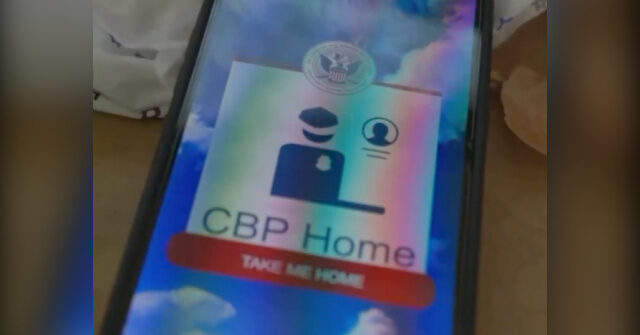




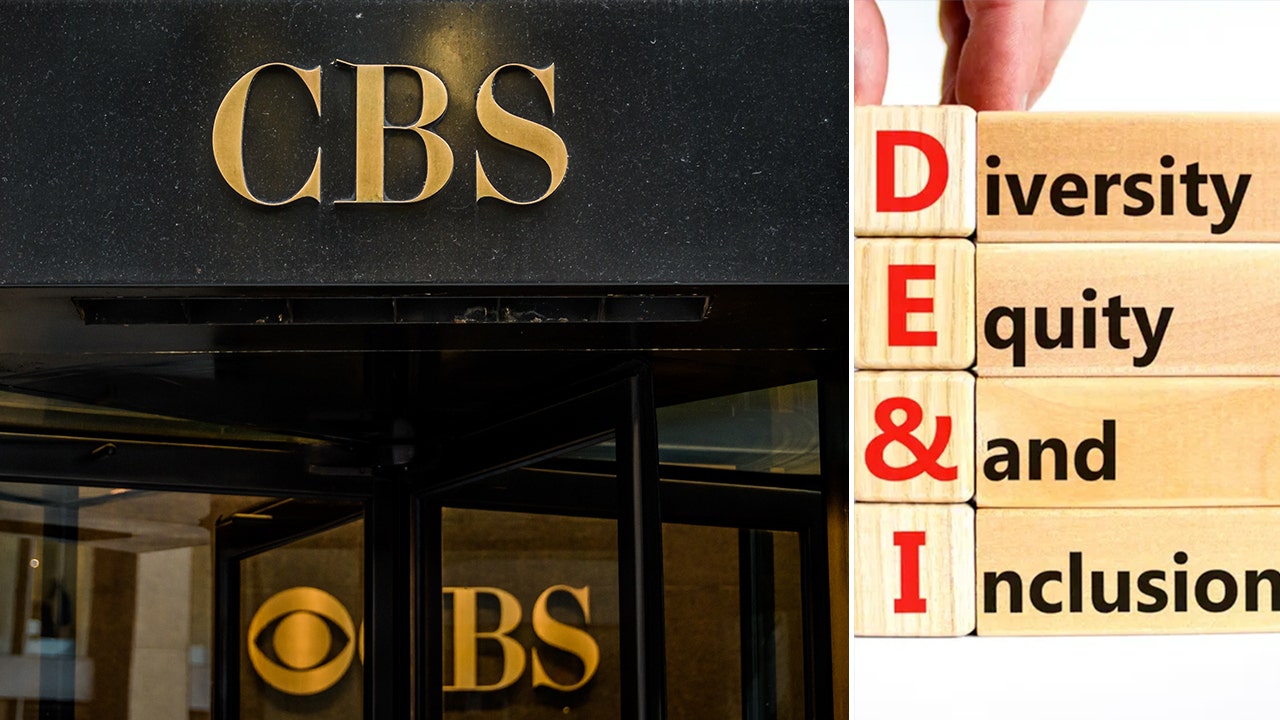







.png)


Discussion about this post